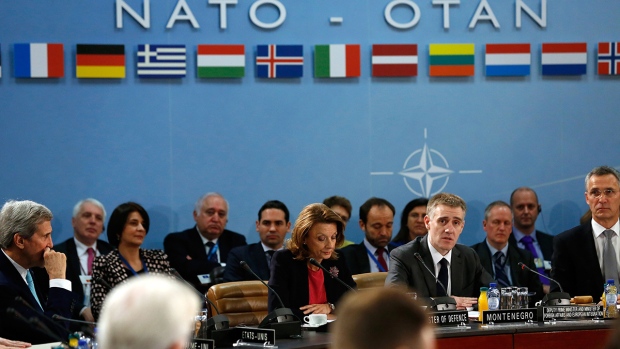“Big tech” is a buzzword in Western democracies. Governments, journalists and publics are engaged in endless debates on whether or not to regulate it. If so, then how? What kind of regulation? Where lays the line between proper restriction and content suppression? So far, these questions are unanswered, though the longer the debate continues, the more pointed the problem becomes.
To this digital behemoth, in February this year, Australia took a sizeable first swing: enacting legislation requiring digital media firms to pay publishers for news content shared/displayed on their platforms. Reactions were polarizing, none more so than “big tech” itself, which blocked all Australian news online in a game of digital chicken with the Government. Though the legislation was later relaxed, it spurred similar attempts in other countries, notably, Canada.
Following these events, the NATO Association of Canada’s editors debate on whether Facebook, Google and other social media should pay for news content on their platforms:
Messengers-in-Chief by Arjun Singh
Facebook’s dispute with the Government of Australia generated considerable interest after the latter mandated that the company pay publishers to display their content online (e.g., links shared by private users). While Australia’s last-minute amendments to a planned media code quelled the dispute, the episode is the latest among successive attempts by national governments to force social media to pay for news. Rallying support under the cry of “regulating big tech” – nowadays, an easy political punching bag – these efforts are little more than harmful market distortions favouring cartelized interests in news media. The ‘problem’ so proclaimed is, at essence, much ado about nothing.
At the heart of the issue lies an intractable reality: print media is dying. For over two decades, as more consumers and workers have begun to live their lives through a digital prism, the market for printed newspapers/magazines has contracted precipitously. Tis’ much botheration to pay a subscription and wait for printed material to arrive, when most content is instantly available online, for free. For publishers, these losses have compounded – as advertising firms, their real revenue source, logically follow the herd to its screens, and buy online advertising to reach consumers. This has forced the closure of thousands of small publications worldwide, while Google and social media firms ever-increasingly dominate the advertising market.
This phenomenon is nothing new. Just as the horse-buggy became obsolete when motorcars were invented, the global economy has always adopted new, efficient innovations in lieu of old ones, despite Luddite sensibilities. The loss of small publishers and journalism is certainly lamentable, and the rise of big technology firms regrettable for other pertinent reasons (e.g., control/censorship of political expression, and commercialization of user-generated data). However, blame for this reality cannot be laid at – or staved-off by surcharging – these companies, which are simply more adept at competition. We must give credit where due, and only be critical when appropriate.
Ultimately, whether these firms ought to pay for the content shared on their platforms depends on their intrinsic character. Should these companies remain free digital marketplaces, as facilitators of content – and not restrict expression with which they disagree (e.g., @realdonaldtrump) – forced payment would be unwise, akin to Hyde Park charging its speakers. However, if they restrict their platforms – ostensibly, to save commercial face – they must face the full force of commercial regulation, including publishers’ copyrights. Quite literally, power always comes at a price.
‘If the Price is Right’ by Griffin Cotton Cornwall
A fair price from Facebook and Google for news content will help secure the Canadian media landscape. The internet has allowed the global media and information landscape to become more connected than ever before. Services such as Google and Facebook play a key role as a conduit through which consumers can access, share and discuss media content. However, as access to information through these services grows more widespread, the journalists and press outlets that report the news Google and Facebook present are expressing concerns about the viability of their business. At present, a majority of revenue generated by digital content goes to the tech companies. In late 2020, the Australian government passed a law requiring Google and Facebook to pay licensing fees for the news they present. Following the Australian decision, a draft of similar legislation was promised for Canada in 2021.
Creating a legal regulatory environment that will address the financial instability of Canadian media will have a strengthening effect on Canadian democracy. As the use of disinformation – i.e., seemingly legitimate false content meant to lead the reader toward a conclusion favourable to the creator – becomes more common among state and non-state actors, a healthy and diverse media can mitigate its harmful effects. Facebook in particular has been criticized for its handling of disinformation and ‘fake news,’ with allegations that its algorithms prompt users towards harmful content. The proposed legislation may push Facebook and other companies to re-examine their policies, should they have to licence content from other media partners. With a level playing field and clear expectations for all parties, Canadian media would be able to carry on as a vibrant forum for reliable reporting and analysis by a plurality of voices.
Two Sides of the Same Coin by Eric Jackson
Australia’s requirement that tech giants pay to display news content on their platforms have short-term benefits but possible long-term consequences. At the outset, having companies like Facebook and Google pay local news agencies for their content is a good thing. A 2018 investigation found that for every AUD $100 spent on advertisement, $49 went to Google and $24 went to Facebook – leaving $27 for everyone else. This dominance has become even more extreme in 2021, where the breakdown is $53 for Google, $28 for Facebook, and $19 for others. This distribution of revenue, based on content that neither of the tech giants created, is unfair. The new law allows for the redistribution of income equally to those deserving financial compensation and recognition for their original content. In this sense, the new law addresses short-term concerns over big tech exploiting the content of news agencies.
However, long-term consequences stemming from this law offer big tech the ability to increase their market control. American broadcaster CNBC recently suggested that forcing tech companies to pay for news will create adverse incentives that limit available information. The argument is simple: why should tech companies pay for news they have no interest in promoting? Companies like Facebook and Google seek profits. Forcing them to pay for displaying news incentivizes them to choose specific content or outlets they wish to promote – limiting the news available to the public and decreasing revenue to content creators.
Immediately, I think this law is needed and appropriate. Authors and creators deserve more revenue for the work they create. However, without adequate planning, long-term implications can overshadow these benefits. It should be noted that ‘big tech’ is not entirely at fault. An overreliance on platforms like Facebook and Google for information consumption is partly the cause. This debate offers governments an opportunity to re-evaluate their relationship with the private sector. Hopefully, it may lead to an equitable and prosperous solution for all.
An Imbalance of Power by Emilio Jason Angeles
News companies have struggled to gain ad revenue and keep pace with the transition to digital news. Though publishers’ revenues have decreased, Google and Facebook profited handsomely. These platforms are gateways to the internet for many, and make money by curating advertisements for visitors, which is made possible through the mass collection of users’ data. As visitors use Google and Facebook, including to read the daily news, publishers only get paid once users visit their site through these platforms.
The relationship between the platforms and news media has long since been a two-way street. Publishers advertise their pieces to Facebook and Google’s user base, and in return, the platforms benefit from having quality content to attract users. However, the onset of targeted advertisements capitalizing on the traffic garnered by news media generates significant revenue for the platforms that the news media do not receive. This power imbalance prompted countries like Spain, France and, recently, Australia into action.
Tech giants’ pushback against the legislation included threats to yank their services from Australia, which ultimately yielded. However, as Google enters an ad-revenue sharing agreement with News Corp, the question remains if other countries should adopt a similar system. Facebook has been averse to the legislation and is wary that similar measures may be adopted in other countries. In Canada, Facebook unveiled plans back in March to pay fourteen Canadian publishers to display select news on the platform. The motion, however, has left many wondering whether the social media giant is stalling regulation efforts.
Although many agree that the Australian system is not the solution to the problems faced by all media companies, both large and small, it is a step in the right direction. While Facebook and Google should pay to display content on their platforms, these pay outs should not be seen as satisfactory. A comprehensive redrawing of platforms’ ties with news media is still needed.
Disclaimer: Any views or opinions expressed in articles are solely those of the authors and do not necessarily represent the views of the NATO Association of Canada.
Cover Image: Australia to force Google, Facebook to pay for news content (2021) by Guillaume Lavalleé for Agence-France Presse via Rappler. Open domain.




